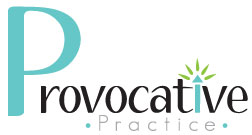English Learners
Provocative Practice™ guides schools and districts in establishing policies, systems, and practices that ensure English Learners achieve and sustain high levels of proficiency, including literacy, in English and the home language; high levels of academic achievement, including proficiency on state and local standards across the curriculum and maintenance of that achievement in English after participation in specialized English Learner programs and through grade 12; sophisticated sociocultural and multicultural competency; preparation for successful transition to higher education; successful preparation as 21st century global citizens; and high levels of motivation, confidence, and self-assurance.
Through our work together, we assist schools and districts in organizing the process of clearly articulating a powerful vision of English Learner success, and then making specific district commitments to English Learner students and families: using a research-based vision and core principles for effective English Learner programs as they reform and design programs; advancing a transformative approach that by design builds bilingualism, biliteracy, and multiculturalism, systemically using English Learners’ languages, cultures, experiences, and skills as a foundation for 21st century learning and success; and promoting the simultaneous delivery of language/literacy development and academic content instruction.
This becomes part of the school’s and/or district’s success plan and generally includes provisions for (1) counseling parents on the different program models or pathways available to ensure parents have the information they need to make sound program choices; (2) redesigning the student assignment system to support program coherence K-12; (3) resituating and consolidating programs in order to provide greater access to continuous and robust EL pathways and transition from current programs to K-12 program pathways that allow for both parent choice and coherence across grade spans; (4) increasing the use of standards-aligned primary language materials, including the identification and purchase of centralized core materials in key languages; (5) prioritizing the hiring of teachers with CLAD/BCLAD certification, demonstrated expertise in teaching English Learners, and high-level bilingual/biliterate skills; (6) developing and piloting an observation protocol and training staff on the protocol’s effective use in monitoring the quality, consistency, and coherence of the program pathways across grades and schools; and (7) building a robust student information system to document the types and quality of our services to English Learners, and the progress of students, both at particular points in time and longitudinally.
African American Students
Many schools and districts have identified the achievement of African American students as a priority focus and have committed to taking action to ensure that all students, particularly those who historically have been underserved and undereducated, experience a rich and rewarding education that prepares them to be productive world citizens. Provocative Practice™ collaborates with school and district leadership to address the unacceptably low engagement, achievement, and success experienced by their African American students.
In order to meet schools’/districts’ goal of increasing academic excellence through rigorous standards-based instruction and creating equitable and sustainable systems that promote high achievement for every student, Provocative Practice™ assists schools and districts in rethinking their approaches, and specifically to design and implement culturally and linguistically responsive 21st century African American student achievement initiatives that yield dramatically improved engagement, achievement, and 21st century student success. These initiative reflect an asset-orientation and use students’ languages, cultures, experiences, strengths, and interests as the foundation for their high-level success.
At Provocative Practice™, we have experience helping schools and districts convene broad-based stakeholder groups to (1) envision what such an initiative tailored to the strengths, needs, and interests of their students would look like; (2) develop recommendations for the design and implementation of such an initiative and the necessary support systems: environments of high expectations, high quality instruction and interaction, and high intellectual performance; 21st century culturally and linguistically responsive curriculum, pedagogical practices, and instructional resources; performance assessments and other measures of student, classroom, school, and district progress and success; professional development and support; family and community engagement; leadership development; funding and resource allocation; and supporting partnership agreements; and (3) develop the relationships necessary to do their best collaborative work now and in the future on behalf of their African American students.
